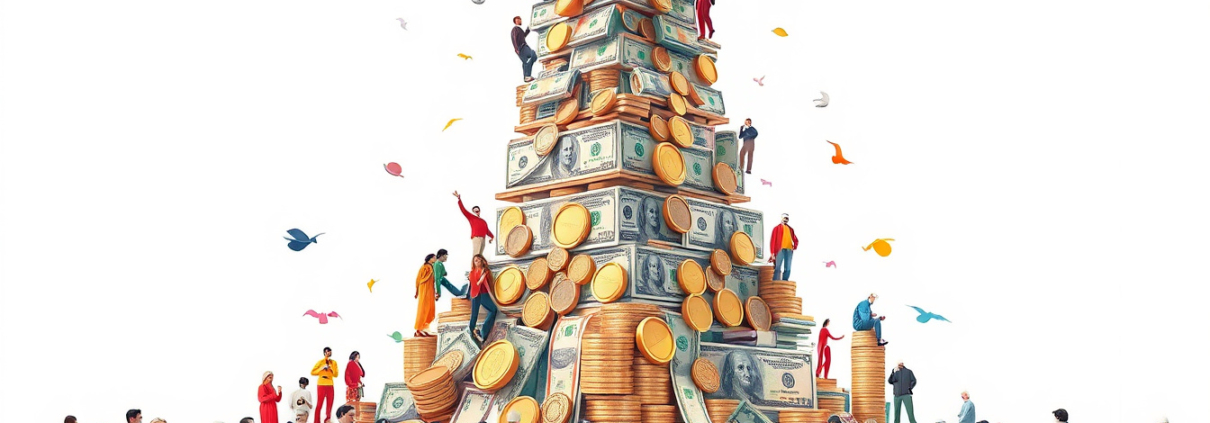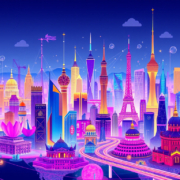🧾 Reviewing a Monetary Structure That Massively Influences Lives
The global financial system is a network of parts that shape billions of lives. New events in the economy show breaks in this network. Experts now point to its hidden work and long-term effects. Look closer and you see a monetary system tied to debt, central banks, and political power. This design affects economies and people everywhere.
The Origins and Mechanics of the Monetary System
The current system rests on the work of central banks. The Federal Reserve, the Bank of Japan, and the Bank of England play key roles. They work with money creation, which happens mainly through debt. Money comes into play when people or businesses take loans, mortgages, or use credit cards.
- This system builds money creation on borrowing, using debt to drive it.
- The Federal Reserve began in 1913, close to the start of the IRS. This ties debt, taxes, and money.
- Many say the system is "rigged." A few families and banks hold control.
Historical Insights and Predictions
Futurists like Buckminster Fuller and past economic trends push ideas about repeat collapses. Since the early 1980s, some have warned of hard times. For instance:
- The 2008 financial crisis was seen as a sign, not the end.
- The crash now seen by many as the worst began near 2021.
- The fall of China’s real estate market—seen hard in the case of Evergrande, one of its largest builders—has spread troubles to other nations, such as Australia where Chinese demand helped the economy.
The Shadow Banking System and Economic Crises
The repo market falls inside the part of the system called "shadow banking." In September 2019, this part failed. This quiet sign warned that the system had reached a breaking point. Governments and central banks spray markets with cash by printing money. This act tries to hold back a failure that many see as near.
- The U.S. dollar stays the reserve currency, a result of the 1944 Bretton Woods plan.
- The endless printing of money gives a view of calm but is not built to last.
- Events like the COVID-19 outbreak are tied into this money story. Lockdowns seem to hide fears of social unrest when money fails.
Financial Education and Economic Inequality
One large problem here is that most people do not learn much about money work. Schools rarely show how money, debt, and the system act. This gap stops many from making wise money choices or from seeing big shifts in the economy.
The system also makes tax work unfair:
- Employees pay about 40% in taxes.
- Small business owners and entrepreneurs may face tax rates near 60%. This puts them in a hard spot.
- Large corporations with 500 or more staff pay much lower rates (around 20%).
- "Insiders"—the wealthy and powerful tied to the system—often pay little or no tax.
These gaps make debates about capitalism, Marxism, and economic fairness go on.
The Broader Societal Perspective
Many compare money plans to belief systems. They affect values and habits in real ways. The big question is: Which money view should we choose? Whether people push for more tax on the rich, wise investing, or lower taxes for many, each must walk through a field of many ideas.
The money world stays in the hands of few. These players pull the levers on cash and rules. Many times, they hide behind the face of large groups. The picture of the Fed chair stands like the face behind a grand curtain.
Key Takeaways
- Money creation is built on debt. It needs ongoing borrowing.
- The global system is rigged to favor a few top players.
- Big money crashes are unfolding, with China’s building troubles as a key sign.
- The shadow banking system brings hidden risks to stability.
- Poor financial learning makes gaps and hurts many.
- Tax work is not even, with workers and small owners catching the worst rates.
FAQs
Q1: Why does money depend on debt in today’s system?
A1: When banks lend money, they create cash. Loans, mortgages, and credit cards all pull new money into the stream. Without these debts, the money pool would shrink.
Q2: What jumped off the economic crisis in China, and how does it hit the world?
A2: China’s building market tumbled when risk took over and many units stayed empty. The case of Evergrande shows this drop. This slip touches global supply chains and hits countries that count on China, like Australia.
Q3: Why is money learning key, and why is it rare in classes?
A3: Knowing how money, debt, and the system work helps each person make wise choices and spot risks. Without basic lessons, many fall behind when large institutions move.









